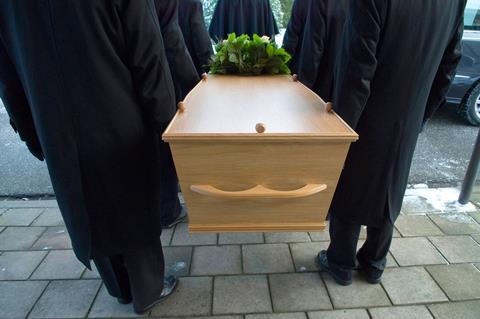Prayer is central in all that we do but at times of agony it matters more than ever, says Michael Coren

Last week was not kind.
Within the space of 24 hours two of my friends died, both with a suddenness that chilled me.
One was 69 years-old but robust, healthy, and always so full of enthusiasm and determination. I’m so grateful that I visited Britain from my home in Toronto last December and saw him twice. One of those occasions was a long, exquisite lunch in a Turkish restaurant. That will be my invincible memory but I am shaken to the core.
The other was a mere 33. Painfully and unfairly young. I remember her as a baby, she knew my two daughters, and was the same age as one of them. I also gave her a job on a television station where I once hosted a show, not because of who she was but because she was so funny, clever, kind, and mischievous. Oh, her poor parents, her poor friends and family.
I’ve been ordained five years and while I’ve taken three weddings and one baptism I’ve presided at dozens of funerals. That means I’ve grieved with people, held them, heard them. I’ve also been at more hospital beds with the dying than I can remember, watching death’s shadow emerge ever stronger and darker. It’s always so difficult but, all clichés aside, also a privilege. I’m trusted, people depend on me, and while I often feel totally inadequate, I know that it’s not about me at all. All I can do is be a conduit. Pull back the curtain, reveal Jesus, and then get out of the way.
But what about when it’s closer to home, more personal and intimate, more severe and cutting? I always recommend that people read A Grief Observed, by CS Lewis, “No one ever told me that grief felt so like fear. I am not afraid, but the sensation is like being afraid. The same fluttering in the stomach, the same restlessness, the yawning. I keep on swallowing.”
Whatever we suffer, no matter how much we weep, God empathises because God knows and understands
So, I re-read it this week, and as always with Jack Lewis found new answers and new truths. I prayed in a different way and asked for different strength. It helps, of course it helps. Prayer is central in all that we do but at times of agony it matters more than ever. I genuinely believe that this is only the land of shadows, and real life hasn’t begun yet, but can I rationalise pain and loss, especially when it’s my pain and loss? Frankly, not completely. Bad things happen to good people, they always have and they always will. Far greater Christians than me have written on this at enormous length.
What I can and do say, and what I’ve reminded myself a dozen times in the past few days, is that Jesus has been there before us, suffered before us, and – vital this - suffered for us. In a divine leap of solidarity, he felt what we now feel. God became flesh, became a vulnerable, defenceless baby. More than this, a baby born to poor family living in an occupied country, and having to run from tyranny and violence. As a grown man he knew his fate, knew that the cruellest execution of all awaited him but embraced that agony out of pure, perfect love. Whatever we suffer, no matter how much we weep, God empathises because God knows and understands. Because God became one of us.
One of my friends who died was a Christian, and a priest and a bishop. That makes the entire context different and I suppose I can be more direct in my approach to others and with myself. He was also, while not old, at least someone who had led a full life. The young woman wasn’t Christian but Jewish. Not orthodox but certainly proud of her religion, as are her parents and family. She was also so jarringly young, with so much of her life still to live. That break in the natural order, the smashing of what ought to be, and the destruction of potential, leaves an open wound.
All I can do is place myself in God’s love, and pray the same for those who have left us and those they’ve left behind. Bless them.





































No comments yet